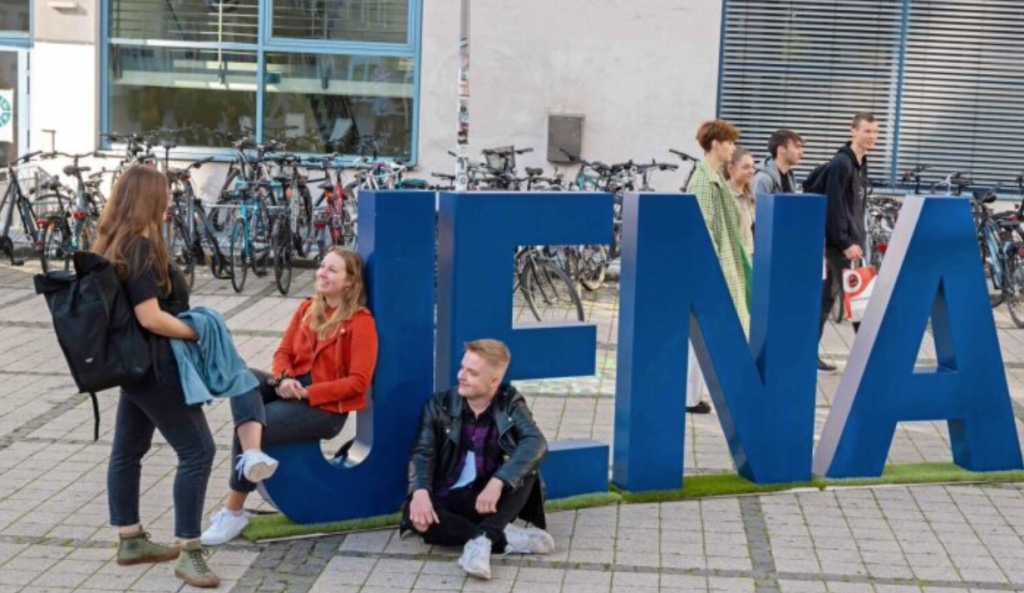Germany (Friedrich-Schiller-Universität Jena) University welcomes its students to the university

The fact that the start of lectures for the winter semester 2022/23 at the Friedrich Schiller University Jena began on 17. October 2022 can already be seen in the cityscape. Jena has abruptly rejuvenated and internationalised itself through the more than 17,300 students enrolled at the university. More than 3,600 first-year students have already started their studies this winter semester. This number will increase in the coming weeks, as enrolment is not yet complete and late registration procedures are still underway.
More international students again
Compared to the previous year, the total number of students at the cut-off date has decreased slightly. Fifty-six percent of the students are female, and as many as 60 % of the first-year students, according to the preliminary student statistics. The percentage of international students is approaching the pre-Corona pandemic level again at around 14.5 % (14.9 % in 2019). More than 2,500 international students have re-registered or newly enrolled for studies at Thuringia’s largest university. Among them are over 90 students from Ukraine and more than 100 students from Russia.
The reason for the decline in the number of first-semester students – around 240 compared to the previous year – cannot be said with certainty at present. However, the Conference of the Ministers of Education and Cultural Affairs of the Federal States (Kultusministerkonferenz der Bundesländer) assumes in its calculations for the next few years that the number of students in Germany will remain the same or decline slightly. Certain is, that a third fewer Master’s students from abroad have enrolled, mainly because third-country nationals were not granted student visas in time or because they were unable to provide proof of sufficient funding.
Enrolment at the Friedrich Schiller University is still possible at short notice for German applicants at the Student Service Centre until 28 October, so the final student numbers will still change.
Attendance semester despite energy crisis
“We are also reacting to the energy crisis with lowered room temperatures and other energy-saving measures with which we want to contribute to a more sustainable university operation,” says Prof. Dr Walter Rosenthal, President of Friedrich Schiller University. Despite rising energy costs, however, the university wants to maintain face-to-face teaching: “We don’t think much of switching to online teaching and longer winter breaks, as this only transfers energy costs to the students. The students are very welcome in our rooms.”
